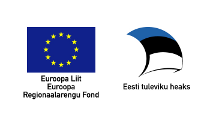Credit losses a problem for 73% of businesses in Estonia
Text Mark Taylor Photo Intrum
 Ilva Valeika, managing director at Intrum Baltic.
Ilva Valeika, managing director at Intrum Baltic.
According to a survey conducted by Intrum, 73% of businesses in Estonia are struggling to manage the impact caused by customers not paying the money they owe, making late payments and requesting extended payment plans (known in banking as a credit loss). As a result, Estonian companies did not have enough capital to make investments in many areas, were unable to expand their selection of products and services, improve sustainability, and pay their suppliers quickly.
For most Estonian enterprises, credit losses decreased (31 per cent) or remained stable (35 per cent) in 2021. Nevertheless, credit losses have become a major problem for Estonian and European companies. In 2021, 46% of firms in Europe admitted that credit losses have become problematic when it comes to customer payments. This year, it is already a concern for 60% of European companies. Baltic enterprises are hit particularly hard, with 73% of Estonian, 77% of Lithuanian and 80% of Latvian businesses admitting credit losses as problematic.
According to the Intrum survey, 86% of Estonian businesses consider debtors that pay after the set due date a significant problem. Which was a slight increase from 2021, when 84% of businesses felt the same way. Long payment terms were considered less problematic than in 2020 when 76% of Estonian companies saw this as a concern compared to 81% in 2021.
„As there is little certainty about how long the inflation crisis will last, other strategies – investing in new skills and technologies, reviewing all the invoicing and debt collection process with outsourcing debt collection if needed and enhancing ESG performance – will be required for the months ahead,” explained Ilva Valeika, managing director at Intrum Baltics.
Across Europe, the growing challenge of late payments, in an unpredictable economic environment, is a cause for concern. But there are reasons to be optimistic about the broader picture for debt and money flows. Three-quarters of European respondents (76 per cent) said improving their debt management is, for example, a strategic priority for the next 12 months.
Russia’s invasion of Ukraine may have been a catalyst for this shift. While 71 per cent of respondents were focusing on debt management as a strategic priority before the conflict, the figure increased to 81 per cent after hostilities began in late February.
To learn more about this and similar topicsBusiness Credit Loss Credit Loss Estonia Estonia Intrum Late Payments Latvia Lithuania









